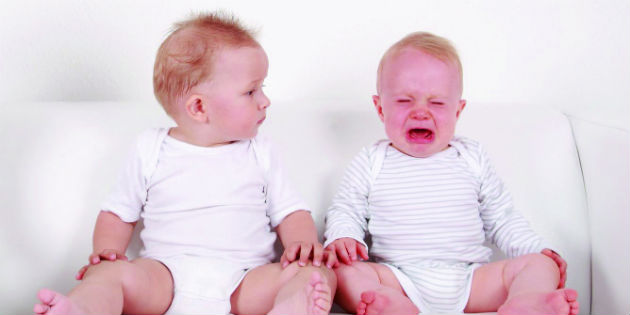Bilateral tinnitus can be hereditary
TINNET
Christopher Cederroth presented at theTINNET mini conference meeting in Spainat the end of March. He spoke about hisBilateral tinnitus work that has just beenpublished in the journal Genetics inMedicine.

The main finding from the recently publishedstudy is that researchers have been ableto demonstrate the hereditary nature ofcertain forms of tinnitus. Bilateral tinnitushas been shown to depend on geneticfactors, particularly in men. The twin study,which is published in the journal Genetics in Medicine,was conducted by researchers at Karolinska Institutettogether with colleagues from the European researchnetwork TINNET.
Tinnitus, is experienced by 10 – 15 per cent of peoplein Sweden. For one or two per cent of the population,the symptoms are extremely distressing and impactadversely on daily activities, work and sleep. Tinnitusthus has negative social consequences for thesufferers, while being an important economic burdento society.
Tinnitus prevalence increases with age and is thoughtto be related to a number of environmental factors butlittle research has been done on the subject. There arealso no effective cures for the condition, due possiblyto the heterogeneity of the condition.
Unexpected results
Using data from the Swedish Twin Registry, researchersat Karolinska Institutet have found evidence that insome cases tinnitus has genetic causes.
“We’ve been able to show that different forms of tinnitushave a significant heritability and thus a dominantgenetic influence over environmental factors,” saysChristopher R. Cederroth at Karolinska Institutet’sDepartment of Physiology and Pharmacology.
When the researchers first examined all forms oftinnitus they made the same conclusions on heritabilityas others have reported. It was only after grouping thesubjects by sex and unilateral/bilateral tinnitus thatthey uncovered the genetic correlation.
“This result is surprising and unexpected as itshows that, unlike the conventional view of tinnitusbeing driven by environmental factors, there is agenetic influence for bilateral tinnitus which is morepronounced in men” says Dr Cederroth.
Considerable clinical relevance
Their discovery also shows that bilateral and unilateraltinnitus constitutes two separate sub-groups, onlyone of which is influenced by genetic factors. This,claims Dr Cederroth, not only has considerable clinicalrelevance but is also important from a public healthperspective:
“Tinnitus sufferers need better care and treatment thanthey’re currently getting. We need more geneticstudies and a better molecular understanding of itsgeneration, which could open unforeseen avenues todrug development.”
About the researcher
Christopher Cederroth is Assistant Professor at the KarolinskaInstitutet working on tinnitus: mechanisms, diagnostics andcure. Cederroth is co-leader of Working Group 4 (Genetics) inthe TINNET European research network funded by the COSTprogram under the Action number BM1306 working towardsan Understanding of Tinnitus Heterogeneity


